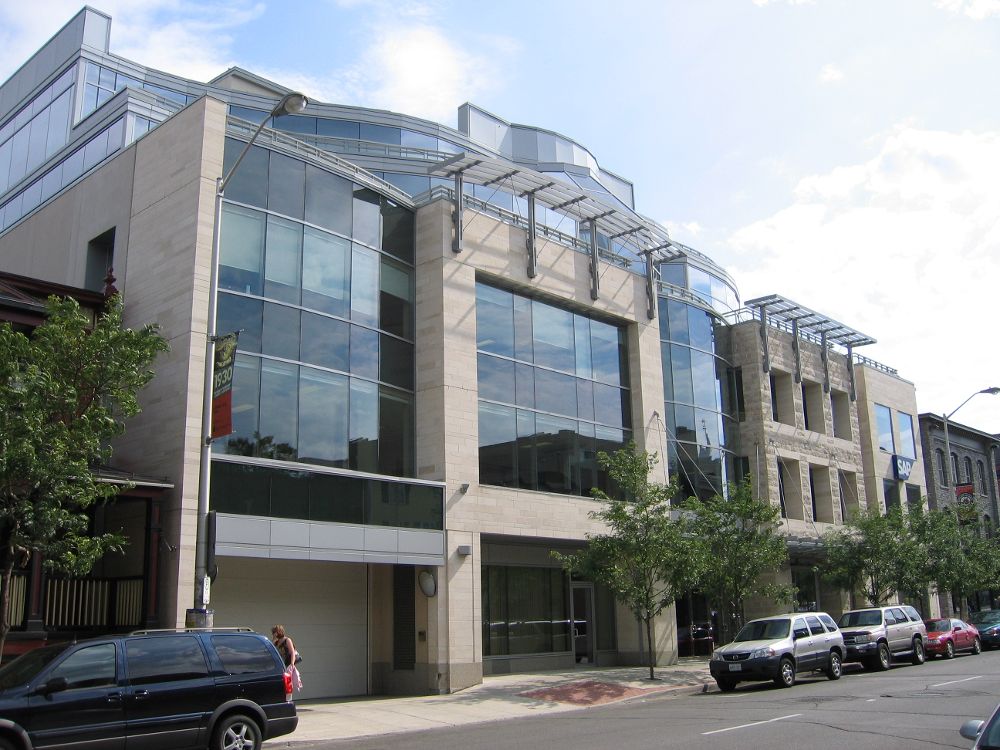The Canada Green Building Council announced June 13 that 100 Murray St. has been awarded Canada’s first zero carbon building certification for performance.

Managed by international real estate group Bentall Kennedy, the class A commercial office building had already achieved LEED Gold certification in 2016. According to the council, the managers have continued to optimize energy efficiency and carbon reduction measures and were able to demonstrate a balance of zero carbon emissions.
According to the council, Zero Carbon Building-Performance certification, which was created in October 2017, requires buildings to demonstrate that little to no carbon emissions were created over a 12-month period of the building’s operation, with the performance being verified annually.
“To earn this certification, Bentall Kennedy’s project team had to evaluate energy use holistically, including impacts on peak electricity demand, and determine the GHG emissions associated with structural and envelope materials,” wrote the company in a release.
Some of the larger items that contributed to the certification are its near-total use of electricity as the primary energy source, the establishment of an advanced building automation system, and the use of efficient lighting and control systems throughout the property.
According to the council, electricity from the province’s low-carbon grid accounts for 95 per cent of the building’s energy use. They also saw that the building is “very efficient,” performing better than 92 per cent of similar buildings. In addition, Bentall Kennedy is nearing completion of a plan to replace equipment and phase out the remaining use of natural gas in the building.
“This certification is representative of Bentall Kennedy’s commitment to delivering value for our clients while, through tenant partnership, achieving remarkable things from a sustainability standpoint,” said Anna Murray, vice president of sustainability at Bentall Kennedy.
Coun. David Chernushenko, who heads the city’s environment committee is excited a project like this exists in the capital and hopes that the city can learn from this example that its not as unattainable as people think to build a net-zero building.
“The city has a corporate target of achieving LEED gold certification,” said Chernushenko. “This is absolutely something the city will aim for, first for LEED platinum then, hopefully, to net zero. The technology is there and its easier and cheaper than ever.”
The council so liked the idea that the building has a net-zero carbon output that it signed on as a leaseholder in the building.
“I would like to congratulate Bentall Kennedy on achieving Canada’s first ZCB-Performance certification and showing their commitment to zero carbon buildings. This project clearly demonstrates that LEED-certified buildings are great candidates for a zero carbon retrofit taking performance to the next level,” said Thomas Mueller, president and CEO of the the council.
“As advocates for low impact, high performance buildings, we also felt it was important for the Canada Green Building Council to relocate to an office space that is truly innovative and reflects its values as a leadership organization.”
Mark Hutchinson, vice president of the green buildings program at the CaGBC, says there are a total of 16 pilot projects, including several multi-family dwellings, which will be built to the zero carbon designation, but this is the first designation that has been given to an existing structure.
“There are some benefits to being small but we are very happy to have some projects at over one million square feet,” Hutchinson said. “This designation represents the importance of meeting our greenhouse gas targets and buildings represent one of the most cost-effective ways to reduce greenhouse gases.”




Comments